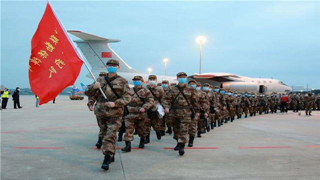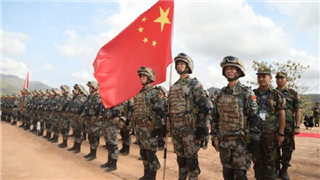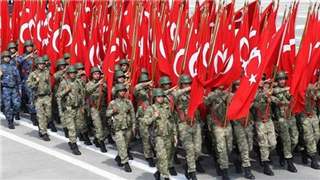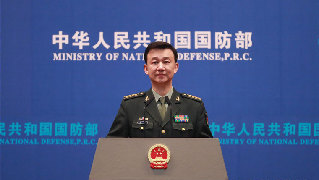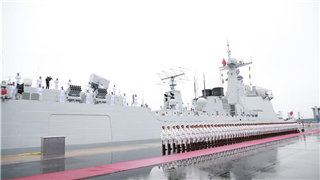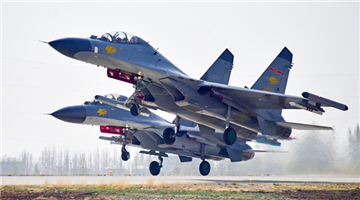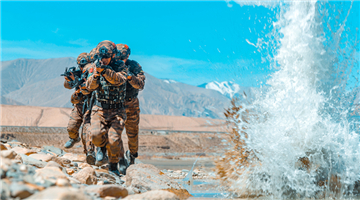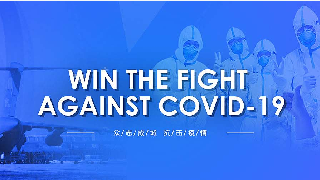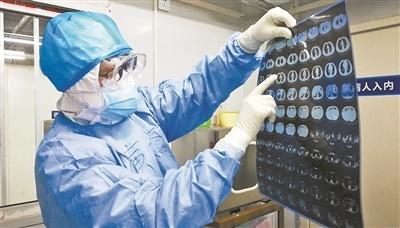
By Wang Tonghua and Gao Liying
Huang Wenjie, this is a somewhat unfamiliar name.
Many young people at the Huoshenshan Hospital which is now operated by the Chinese PLA and is responsible for the treatment of the COVID-19 infection may have totally no idea when asked if they knew Huang Wenjie. However, it is a familiar name among Huang's senior peers.
If you use the search engine, you will find that he was the first one who successfully reported the first Severe Acute Respiratory Syndrome (SARS) case and treated the first SARS patient in 2003. He made a significant contribution to fighting SARS and was rewarded the first-class merit citation in 2003.
Huang Wenjie was in his 40s when fighting in the frontline against SARS in Guangdong 17 years ago. 17 years later, Huang turned 58 years old and the COVID-19 epidemic occurred. Huang, now the chief of Respiratory Medicine at the General Hospital under the Chinese PLA Southern Theater Command, returned to the battlefield and serves as an expert in the PLA military medical team to Hubei.
A veteran’s true qualities
After entering the Huoshenshan Hospital, Huang took the lead to work like a repair worker and a cleaner. He checked everything including switches, sewer and AC to ensure that they function normally.
Huang Wenjie's ward began to focus on treating patients in serious and critical conditions on February 8.
A patient with serious conditions had a history of diabetes and hypertension, and his condition deteriorated rapidly after admission. Huang stood by the bed, carefully observed the patient's response, fine-tuned the ventilator parameters to ensure that he was given the most appropriate respiratory support treatment.
The patient suddenly coughed sharply, making people around very nervous. Huang Wenjie pulled out a tissue and handed it to the patient.
"Please be well protected," the patient reminded. Huang Wenjie smiled slightly and said: "Relax, I am here to kill the virus!"
In those days when many people got worried talking about SARS in 2003, Huang often stood for half an hour in front of the patient's bed. Now, Huang always check the throat, listen to the breathing sounds in the lungs, and clear tracheal secretions for patients. "The closer you get to the diseased, the more details you can possibly obtain, and the treatment is more pertinent," said Huang.
Huang Wenjie kept working from 1 p.m. on Feb. 8 until the admission and triage of all 45 patients were completed. It was until then that Huang became aware that his feet were numb.
"I thought I couldn't hold on at that time," Huang Wenjie said. Seeing the painful eyes and critical state of the patients, Huang had only one thought: "We must save them."
Having high blood pressure, Huang brought antihypertensive drugs before leaving for Wuhan. As long as staying in the "Red Zone" in his protective suit for a long time, He would feel chest tightness and shortness of breath. He had to try to regulate his breathing as much as possible, and never showed it to his colleagues. Occasionally, Huang would send his wife a WeChat message to let his wife know that he was doing ok in the middle of the night.
The wife understood his true voice: Huang is most worried about whether he could treat more patients, rather than his own health.
Aura of an old soldier
An old soldier never panics. Facing the epidemic, Huang Wenjie stated his reasons for participating in the fight: "There is no problem in my body and thus I am physically fit to the fight. I had studied in Wuhan and have been familiar with the regional environment. Most importantly, I have experience in fighting against SARS." This time, Huang Wenjie once again became backbone of this team.
"What I admire the most is Director Huang's clinical acuity," said Dr. Luo Gaoquan, "Although the treatment guidelines have formulated guiding principles, acute clinical judgement is needed for specific treatment."
Huang proposed the principle of precise treatment based on the comprehensive judgment of the patient's basic disease, imaging performance, laboratory test results and clinical treatment response in order to achieve the best results.
Huang Wenjie and his medical team provide scientific treatment based on their extensive clinical experience. They have successfully treated 34 patients since February 26. When patients express their heartfelt thanks to Huang, he would always reply: "I am a doctor, and saving people’s lives is my job and my duty."
